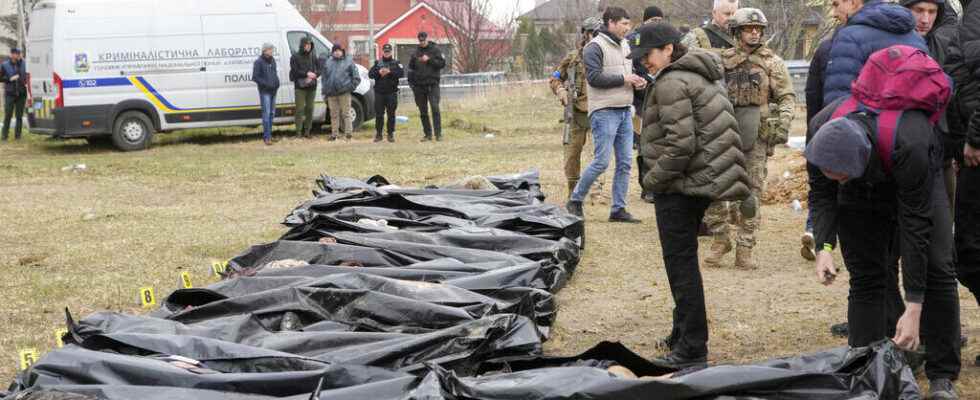It is an eight-month survey conducted by the american daily New York Timesand relayed this Friday in France by the newspaper Releasewhich lifts the veil on the killers of Boutcha.
As a reminder, last April, the atrocities committed in this locality near the Ukrainian capital were brought to light. Images of a street in Boutcha strewn with corpses, rue Yablonska – 36 bodies in this single artery – then went around the world. The identity of a Russian officer accused of this massacre had been revealed. This is Lieutenant-Colonel Artyom Gorodilov, promoted to colonel by Moscow just days after the publication of the images of the Boutcha massacre.
As thus underlined Release, the New York Times assures that “ the alleged perpetrators of the Yablonska Street massacre (…) are Russian paratroopers from the 234th Air Assault Regiment, led by Lieutenant-Colonel Artyom Gorodilov. This unit (…) is considered one of the best trained and equipped in the Russian army “.
As proof, the American daily reveals that “ Russian soldiers used their victims’ phones to call their loved ones (theirs, the Russian soldiers), often just hours after killing them. Analysis of phone numbers and social media profiles associated with their family members confirmed the identities of about 20 paratroopers from the 234th Regiment », Reports Release. Which newspaper reports that the now Colonel Artyom Gorodilov “ has already participated in several “special operations” like this, and notices that the New York Times also have “ found the identity of the 36 victims of Yoblonska Street “.
Special operations ? In Boutcha, as elsewhere, it would be, according to the New York daily quoted by Freedoperations “ systematic “cleaning” aimed at securing the path to the capital Ukrainian.
Trains at Christmas?
On this eve of the Nativity, the Catholic daily La Croix is heartbroken. “ Is our country so keen on resembling the caricature that is made of it abroad, he asks. How did we arrive at this grotesque situation in which a large number of our compatriots will not be able to celebrate Christmas with the family when no union has called for a stoppage of work? », wonders again The cross. The daily regrets ” the great weakness of our unions (which) is obvious: deliberately kept at a distance by the strikers, they are reduced to spreading their divisions between those who do not call for a strike, or even support it, and those who allow by maintaining advance notice giving controllers the framework they need. Why don’t they grant us a Christmas truce! », preaches in conclusion The cross.
In the newspaper Humanityafter pointing out that this social conflict among the controllers of the French national railway company was made possible “ thanks to the digital tools that today allow this kind of dynamic “such as social networks, the historian of trade unionism Stéphane Sirot warns that in the future, “ we are going to witness a fragmentation of discontent”. “It is up to the unions to demonstrate to those who would like to engage in categorical conflicts that broad and collective mobilizations are more effective », says Stéphane Sirot again in Humanity.
In the meantime, faced with this shock strike, ” Macron and his government (are) powerless “, spear Le Figaro. Being reminded that the national company of French railways is called the SNCF, this daily took out its ax. Judge instead. ” On his return from Jordan, where he was taking part in the Baghdad II conference, Emmanuel Macron had to face the facts: there is more hope in trying to pacify the Middle East than the SNCF, lumberjack he goes all out (…) Faced with the strike, the impotent government could only take refuge in denunciation. On the airwaves, it was who would attack the SNCF controllers the most virulently », notices again Le Figaro. Will there be trains? At Christmas, no. For the New Year, the question is asked.
